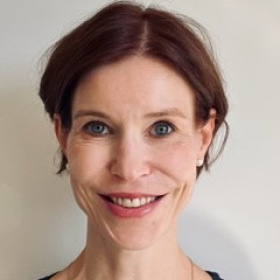

Veronika (Court of Justice of the EU)
“Ako právnička lingvistka na Slovenskej prekladateľskej sekcii Súdneho dvora EÚ pracujem už 16 rokov. Rozhodnutie prijať ponuku Súdneho dvora nebolo jednoduché, keďže som zvažovala rodinné dôvody. No pracovať pre tak významnú inštitúciu bolo pre mňa veľkou výzvou, ktorú som sa rozhodla prijať. Svoje rozhodnutie som neoľutovala.
Náplňou tejto práce sú preklady a revízie dokumentov Súdneho dvora, ako sú rozsudky, uznesenia a návrhy generálnych advokátov. Prekladáme tiež návrhy na začatie prejudiciálneho konania podané slovenskými súdmi, pripravujeme zhrnutia takýchto návrhov a pre potreby ostatných oddelení Súdneho dvora vykonávame rôzne právne analýzy. Podieľame sa aj na projektoch v oblasti terminológie, ako aj verejného obstarávania na uzavretie zmlúv s externými prekladateľmi.
Ja osobne vnímam ako najväčšie pozitívum práce pre Súdny dvor možnosť kontinuálneho odborného vzdelávania. Súdny dvor ponúka širokú škálu školení: od odborných, cez štúdium jazykov, prehlbovanie si znalostí v oblasti informačných technológií, až po školenia zamerané na osobný manažment.
Taktiež veľmi oceňujem dôsledné dodržiavanie rovnosti medzi ženami a mužmi a dôraz Súdneho dvora na duševnú a pracovnú pohodu svojich pracovníkov.
Cením si tiež dostatočnú flexibilitu, ktorú máme pri výkone našej práce, čo nám umožňuje skĺbiť pracovný a rodinný život. Na našom oddelení panujú dobré kolegiálne vzťahy, čo je nepochybne dôležitým prvkom pohody na pracovisku.
Práca právnika lingvistu je vhodná pre každého, kto má právnické vzdelanie a baví ho pracovať s jazykmi a ďalej sa v týchto oblastiach rozvíjať. Ak vás táto pracovná pozícia zaujala, určite sa do výberového konania na právnikov lingvistov pre Súdny dvor prihláste.”
***
“I have been working as a lawyer-linguist in the Slovak translation unit of the Court of Justice of the EU for 16 years. The decision to accept the offer of the Court of Justice was not an easy one because as I was considering family reasons. However, working for such an important institution was a great challenge for me, which I decided to accept. I have not regretted my decision.
This work involves translating and revising documents of the Court of Justice, such as judgments, orders and opinions of the Advocates-General. We also translate references for preliminary rulings from Slovak courts, prepare summaries of such references and perform, for the needs of other departments, various legal analyses. We are also involved in projects in the field of terminology, as well as tendering for freelance translators.
Personally, I see the opportunity for continuous professional training as the greatest positive aspect of working for the Court of Justice. The Court of Justice offers a wide range of training, such as professional training, language learning, deepening knowledge in the field of information technology or training in personal management.
I am also very appreciative of the Court's strict adherence to equality between women and men at work and the Court's emphasis on the mental and occupational well-being of its staff.
I also appreciate the flexibility we have in the performance of our work, which allows us to combine work and family life. There are good collegial relations in our department, which is undoubtedly an important element of well-being in the workplace.
The job of a lawyer-linguist is suitable for anyone who has a legal background and enjoys working with languages.”
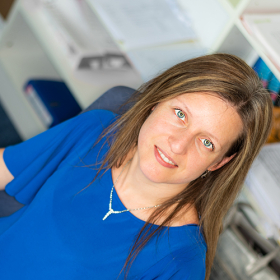
Ieva (Court of Justice of the EU)
“Suderinti teisės žinias ir pomėgį kalboms – visiškai įmanoma! Būtent tai mes, teisininkai lingvistai, darome kasdien, ieškodami sąsajų tarp skirtingų ES valstybių narių teisės sistemų, perteikdami jų skirtumus, gilindamiesi į teisinius terminus ir kalbines raiškos formas skirtingomis šių valstybių kalbomis. Dirbdama teisininke lingviste Teisingumo Teisme, atradau, kad tiek Lietuvos, tiek bet kurios kitos valstybės narės teisė visgi nėra tik nacionaliniu lygmeniu pritaikoma sritis, kad jos žinias galima pritaikyti daug plačiau, taip pat gilinti žinias įvairiose teisės srityse. O kur dar galimybė gyventi ir dirbti daugiakalbėje ir daugiakultūrėje aplinkoje, kai kalbų mokaisi ne vien iš vadovėlio, o susiduri su jomis nuolat, jų įvairovė tampa įprasta kasdienybe. Pabandykite ir įsitikinsite – šis darbas labai įdomus!”
***
“It‘s absolutely possible to combine your legal knowledge and vocation to learn languages! This is exactly what we do every day as lawyer linguists, looking for links and relations between the legal systems of different EU member states, conveying their differences, going into details when we search for appropriate terms and forms of expression, so that our translation does not look like translation, but more as if the text would be elaborated in our own language. Working as lawyer linguist at the Court of Justice, I found out that the national law of Lithuania (and of any other member state) is not only relevant at the national level, that I can apply this knowledge much more widely and learn something new in different law areas as well. In addition, I should mention the opportunity to live and to work in a multilingual and multicultural environment where you learn languages not only from a textbook, but are constantly surrounded by people speaking these languages, this diversity becomes a part of everyday life. Just try and you will see that this work is very interesting!”
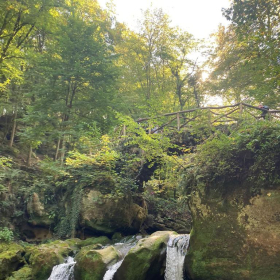
Zuzana (Court of Justice of the EU)
Čím viac som pri cestovaní spoznávala svet, tým viac sa vo mne prehĺbila identita hrdej Európanky. Považujem za privilégium, že k šíreniu hodnôt, na ktorých je postavená Európska únia, môžem po ukončení štúdia práva v Bratislave a vo Viedni prispievať svojou každodennou prácou. Tá mi zároveň umožňuje byť „up-to-date“ priamo pri zdroji v najrozmanitejších oblastiach práva EÚ a zároveň využiť znalosť cudzích jazykov. Zo začiatku som na tejto pozícii ocenila profesionálne vedenie pri nadobúdaní špecifických profesijných skúseností, ako aj rôzne školenia. Postupne som mohla čiastočne pracovať z domu, mať väčšiu samostatnosť a pracovnú flexibilitu. Krásne a moderné priestory budov Súdneho dvora, dobrá organizácia práce, kontinuálna možnosť štúdia jazykov, korektný kolektív a zaujímavé finančné ohodnotenie prispievajú k celkovému výbornému pocitu.
Hoci by sa Luxemburg mohol zo začiatku javiť ako málo pulzujúce miesto, neustále sa vyvíja, čomu prispieva jeho centrálna poloha v blízkosti hraníc s Nemeckom, Francúzskom a Belgickom. Pre mňa osobne je najdôležitejšia skutočnosť, že sa v meste cítim bezpečne, a taktiež oceňujem fungujúce štátne inštitúcie a pluralitnú, tolerantnú spoločnosť. Luxemburg ponúka množstvo kultúrnych príležitostí, ako aj možnosť dostať sa verejnou dopravou zdarma na výlety do prírody v rámci krajiny. Možnosť žiť v meste, ktoré je svetovým dedičstvom UNESCO a je tak ľahko dostupné, zaiste vykompenzuje aj tých pár kvapiek dažďa navyše.
***
The more I explored the world while travelling, the more my identity as a proud European deepened. I consider it a privilege to be able to contribute to spreading the values on which the European Union is built through my daily work after completing my law studies in Bratislava and Vienna. It also allows me to be "up-to-date" at the source in the most diverse areas of EU law, while at the same time making use of my knowledge of foreign languages. In the beginning, I appreciated the professional guidance in gaining specific professional experience as well as the various training opportunities. Gradually, I was able to work partly from home and have more autonomy and work flexibility. The beautiful and modern premises of the Court of Justice buildings, the good organisation of work, the continuous opportunity to learn languages, the correct team and the interesting financial remuneration contribute to an overall excellent feeling.
Although Luxembourg might initially appear to be a place with little vibrancy, it is constantly evolving, helped by its central location close to the borders with Germany, France and Belgium. Most important for me personally is the fact that I feel safe in the city, and I also appreciate the functioning state institutions and the pluralistic, tolerant society. Luxembourg offers many cultural opportunities, as well as the possibility to get free public transport to go on nature trips within the country. The opportunity to live in a city that is a UNESCO World Heritage Site and so easily accessible certainly makes up for the extra few drops of rain.
***
Photo: Luxembourg countryside
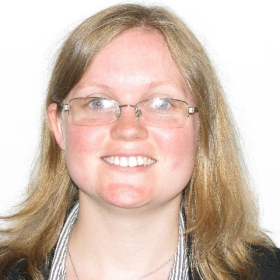
Rose (Court of Justice of the EU)
“I have been working for the Court since 2011, starting as a stagiaire (intern) in the English Translation Unit – now, I advise the Unit on Quality Management issues, in addition to translating from French, Italian, Polish and Romanian (the last two of which I had the opportunity to learn through the Court’s language classes) and correcting freelance and in-house colleagues’ translations from these languages.
My background is primarily in modern languages – my degree was in French and Italian – so it is a real joy to work in an institution and a country where I get to use them every day! Working as a lawyer linguist has also helped me to expand and consolidate my knowledge of EU law (I obtained the Graduate Diploma in Law and completed the Legal Practice Course before coming to Luxembourg) and to gain a deeper insight into the legal systems of the individual Member States.”
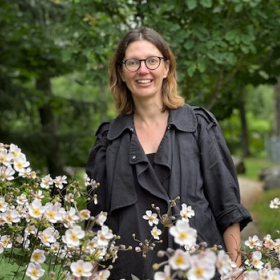
Sigita (Court of Justice of the EU)
Teisingumo Teisme pradėjau dirbti beveik tuo pat metu, kai Lietuva įstojo į Europos Sąjungą, neseniai baigusi teisės studijas Lietuvoje ir Prancūzijoje. Tuo metu buvo labai mažai lietuvių teisininkų, kurie mokėtų prancūzų kalbą taip gerai, kad sugebėtų išversti teisinį tekstą. Ir ne bet kokį teisinį tekstą, o tokį, kuriame Europos Sąjungos teisė persipynusi su valstybių narių teisės sistemomis ir kyla sudėtingų teisės taikymo problemų labai įvairiose srityse, net tokiose, kurios Lietuvoje tuo metu buvo tik pradedamos plėtoti. Taigi, siekiant kuo tiksliau gimtąja kalba perteikti Teisingumo Teismo teisinę mintį, teko ir tebetenka nemažai paplušėti: pasirausti bylos dokumentuose, pasikonsultuoti su kolegomis, kalbininkais, teisėjų kabinetų nariais ir kitomis tarnybomis ar net apsilankyti didžiausioje Europos Sąjungos teisinių leidinių bibliotekoje.
Dirbdama dvidešimt metų tarptautinėje Liuksemburgo aplinkoje su kompetentingais kolegomis, ES teisės ir lyginamosios teisės specialistais, labai daug išmokau. Šiuo metu teisinius dokumentus verčiu ne tik iš prancūzų, bet ir anglų bei ispanų kalbų, mokausi vokiečių. Man labai patinka, kad mano darbe profesinis mokymasis (įskaitant užsienio kalbas) labai skatinamas ir sudarytos puikios sąlygos kompetenciją tobulinti tiek institucijos viduje, tiek seminaruose ar mokymuose visoje Europoje. Dėl technologijų raidos teisininko lingvisto profesija per šį laikotarpį labai pakito, ir man kartu su kolegomis teko įgyti daug visiškai naujų įgūdžių. Šaunu, kad mūsų institucijoje tam sudarytos puikios sąlygos, taip pat užtikrinamos geros socialinės garantijos, puikiai įrengtos darbo vietos, o lankstaus darbo grafiko galimybė labai padeda suderinti šeimos ir profesinį gyvenimą. Institucijoje rūpinamasi ir malonia darbo aplinka: organizuojami kultūriniai, sportiniai, socialiniai renginiai, asmeninio tobulėjimo mokymai, darbo dieną smagu aktyviai pradėti ar užbaigti dideliame sporto centre.
Nekantrauju Jus, savo naują kolegą, pasveikinti Europos Sąjungos Teisingumo Teisme!
Nuoširdūs linkėjimai iš gražiojo Liuksemburgo,
***
I joined the Court of Justice almost at the same time as Lithuania joined the European Union, having recently graduated in law in Lithuania and France. At that time, there were very few Lithuanian lawyers who knew French well enough to translate a legal text. And not just any legal text, but one in which European Union law is intertwined with the legal systems of the Member States, and which raises complex problems of legal application in a wide variety of areas, even in areas that were just beginning to be developed in Lithuania at the time. Thus, in order to convey the Court of Justice's legal reasoning as accurately as possible in my native language, it has been, and continues to be, necessary to do a great deal of work: to review case documents, to consult colleagues, linguists, members of the judges' chambers and other services, and even to visit the largest library of European Union law publications.
Working for twenty years in the international environment of Luxembourg with professional colleagues, specialists in EU law and comparative law, I have learnt a lot. I am currently translating legal documents not only from French, but also from English and Spanish, and I am studying German. I like the fact that professional learning (including foreign languages) is very much encouraged in my job and that there are excellent opportunities to develop my competences, both within the institution and in seminars or training courses throughout Europe. Technological developments have changed the legal linguistics profession considerably during this period, and I have had to acquire many completely new skills, as have my colleagues. It is great that our institution offers excellent conditions for this professional development, as well as good social security, well-equipped workplaces and the possibility of a flexible work schedule, which is a great help in reconciling family and professional life. The institution also provides a pleasant working environment, with cultural, sporting and social events, personal development training, and a great place to start or end the working day with a session in the large sports centre.
I look forward to welcoming you, my new colleague, to the Court of Justice of the European Union!
Sincere greetings from the beautiful city of Luxembourg,
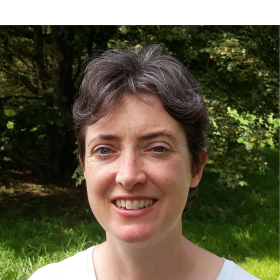
Helen (Court of Justice of the EU)
“I joined the English translation unit at the Court of Justice after completing a degree in French and Czech, followed by a law conversion course and then the LPC. I was keen to use my language skills and was interested in legal drafting, so the job appealed to me from the outset.
However, while legal writing skills are an important part of our work, the role of a lawyer-linguist involves much more than translation. We are called on to liaise with members of the Judges’ chambers on the precise meaning and nuances to be given to a finished translation and in my time here I have been involved in terminology work, mentoring and recruitment. I have followed a wide range of training courses, covering the latest information technology tools, European and comparative law and personal development. We are also encouraged to acquire additional languages, in my case Spanish and Polish.
In my view, a career as an EU lawyer-linguist is stimulating and rewarding for anyone who enjoys word-play and problem solving. It is also fascinating to work at the forefront of the latest developments in EU law.”
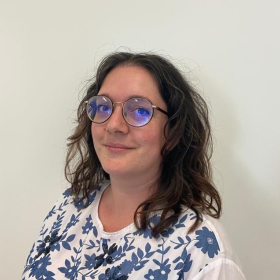
Molly (Court of Justice of the EU)
“I have been an official for the past year and a half, but I have been at the Court of Justice, first as a trainee then a temporary agent, since 2017 (with a break to continue my legal training). I trained as a translator, which I followed up with a law diploma – a requirement for lawyer linguists at the Court of Justice – before coming to Court as a trainee with the English language translation unit.
My working languages are French, German, Italian, Spanish and Greek – one of the aspects of working for the EU that I appreciate the most is how multilingualism is an integral part of everything we do, so my languages are put to practical use on a daily basis!”
Sophie, European Commission
In this coordination unit, you have a very good overview of the DG and the pending ad upcoming MOVE proposals. It’s a perfect position to understand the working methods and dynamics of other institutions as well. It is extremely interesting to closely follow the proposals though the different stages of the co-legislation process and to see how the text evolves in the Council working parties/Coreper meetings and parliamentary Committees/plenaries, and later during the trilogue negotiations”.
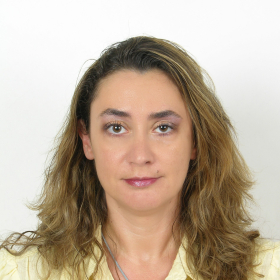
Yolanda (DG ECHO)
"Crisis management encompasses the response to emergencies, in Europe and around the world. Organised along the pillars of civil protection and humanitarian aid, crisis management, for DG ECHO, means tight deadlines, coordination with the other EU institutions and the Member States and with international organisations, travel, and, most of all, the sense that you are doing something that brings tangible benefits to millions. I work in communication – keeping the public informed on what the Union is doing in response to crises from the COVID-19 pandemic to the activation of the civil protection mechanism for Ukraine, to the organization of humanitarian air bridges to the strengthening of the EU’s firefighting fleet. Every day brings something different."

Emmanuel (Operations Department – EUIPO)
" My name is Emmanuel, I am from France, and I speak English, French, Spanish, Italian, and German – the five languages of the Office. The EUIPO, where I started working back in 2008 as an external Project Manager, was my first European institution. A couple of years later I started working in International Cooperation, which brought me closer to IP - and I loved it. A few years later, after a period working for the European Parliament, I passed a competition for IP professionals and went onto work in Design examinations in the Operations Department of the EUIPO.
I deeply enjoy my work within the Operations department, especially the balance between examining designs (core business) and being part of more horizontal projects such as Artificial Intelligence applied to trade marks and designs (mostly for image recognition and automatic classification). One of the activities that I love getting involved in is delivering presentations and conferences to international stakeholders. For instance, next October I'll be going to Cameroon to train African examiners on designs. In the past, I also had the chance to visit Latin American countries such as Costa Rica, Peru, or Ecuador in the context of International Cooperation.
Alicante is a great place to live if you are an outdoor enthusiast. I enjoy activities such as sailing and hiking. Alicante has a manageable size, and it was not difficult at all to adapt when I first arrived."
